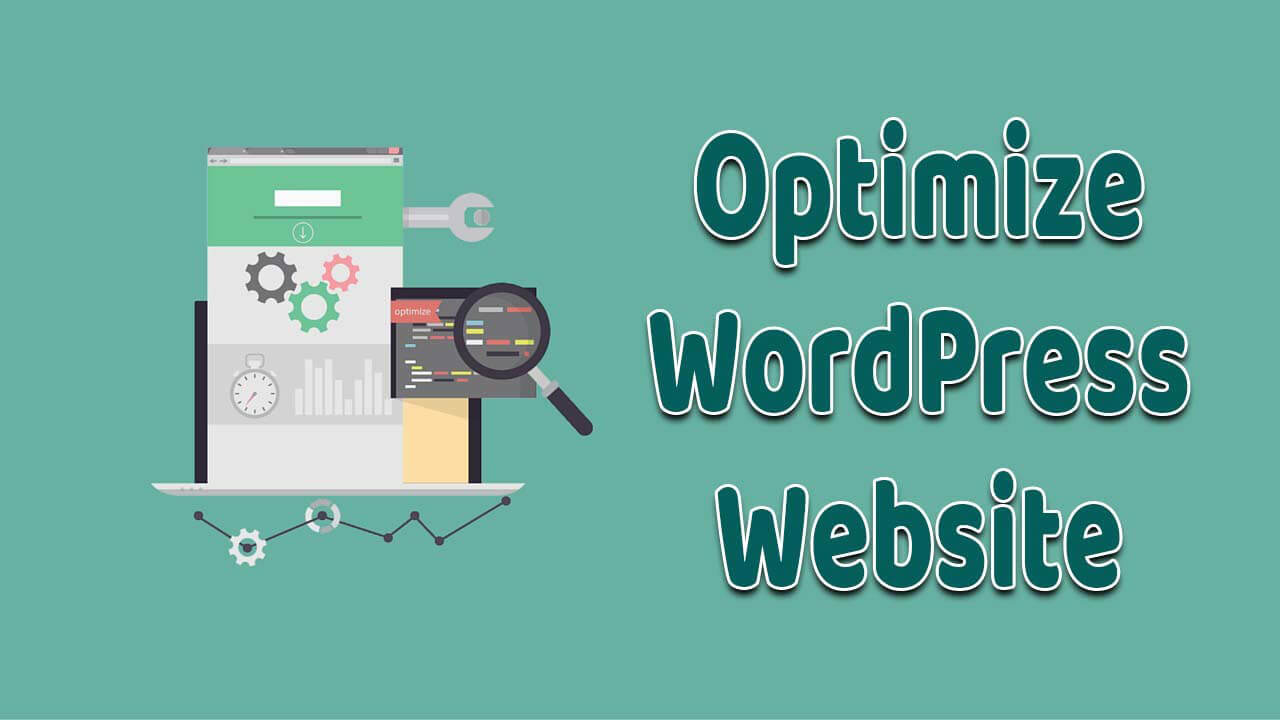How to Optimize Your WordPress Site for Speed and Performance is an important thing. Do you find yourself waiting for a website to load and feeling frustrated when it takes too long? Well, you’re not alone! In today’s fast-paced world, website speed and performance are critical for success. Visitors expect fast-loading sites, and if they don’t get what they want, they’ll simply move on to the next one. As a WordPress user, there are several ways you can optimize your site for better speed and performance. Let’s explore them together. How to Optimize Your WordPress Site is very important for your website.
How to Optimize Your WordPress Site

-
Choosing a fast and reliable hosting provider
Choosing the right hosting provider is the first step towards optimizing your WordPress site for speed and performance. A fast and reliable hosting provider ensures that your website is up and running 24/7, and your visitors can access your site quickly. Here are some tips for evaluating hosting providers:
- Check the uptime guarantee – The uptime guarantee should be at least 99.9%.
- Look for managed WordPress hosting – Managed WordPress hosting takes care of all the technical aspects of hosting, allowing you to focus on creating content.
- Evaluate server locations – The closer the server is to your visitors, the faster the site will load.
-
Using a lightweight WordPress theme
Using a lightweight theme is another critical factor for improving website speed and performance. A lightweight theme ensures that your site doesn’t have unnecessary code and features that can slow it down. How to Optimize Your WordPress Site will be very important.Here are some tips for choosing a lightweight theme:
- Avoid bloated themes – Bloated themes are packed with unnecessary features, making them slower to load.
- Choose a responsive theme – A responsive theme adjusts to different screen sizes, ensuring that your site is accessible to all visitors.
- Consider using a framework – Frameworks provide a solid foundation for building a lightweight theme. You can learn many things about WordPress themes from here.
-
Optimizing images
Images are essential for creating an engaging website, but they can also slow down your site if they are not optimized. Here are some tips for optimizing images:
- Compress images – Compressing images reduces their size without affecting their quality.
- Use the right image format – JPEGs are best for photographs, while PNGs are best for graphics and logos.
- Use lazy loading – Lazy loading ensures that images only load when they are in the visitor’s view.
-
Minimizing HTTP requests
HTTP requests are requests made by the browser to load different parts of your website. Minimizing HTTP requests can significantly improve your website’s speed. Here are some tips for minimizing HTTP requests:
- Combine files – Combining CSS and JavaScript files reduces the number of HTTP requests.
- Use sprites – Sprites are a single image that contains all the images used on a website, reducing HTTP requests.
- Use a content delivery network (CDN) – A CDN caches your site’s content, reducing HTTP requests.
-
Enabling caching
Caching is a process that stores frequently used data, reducing the time it takes to load a web page. Here are some tips for enabling caching:
- Use a caching plugin – Caching plugins store frequently used data, reducing the time it takes to load a web page.
- Use browser caching – Browser caching stores frequently used data in the visitor’s browser, reducing the time it takes to load a web page.
- Use server caching – Server caching stores frequently used data on the server, reducing the time it takes to load a web page. How to Optimize Your WordPress Site is an important factor.
-
Minimizing CSS and JavaScript files
CSS and JavaScript files can significantly slow down your website if not optimized. Here are some tips for minimizing CSS and JavaScript files:
- Minify files – Minifying files removes unnecessary code, reducing file size. How to Optimize Your WordPress Site is very important for your website.
- Use asynchronous loading – Asynchronous loading ensures that files load simultaneously, reducing the time, How to Optimize Your WordPress Site is an important factor.
it takes to load a web page.
- Use defer loading – Defer loading ensures that files load after the web page has loaded, reducing the time it takes to render the page.
-
How to Optimize Your WordPress Site: Regularly updating WordPress, themes, and plugins
Regularly updating WordPress, themes, and plugins is crucial for improving website speed and performance. Here are some reasons why you should update:
- Security – Updates often include security patches that protect your site from vulnerabilities.
- Bug fixes – Updates also fix bugs and improve overall performance.
- Compatibility – Updates ensure that your site is compatible with the latest versions of WordPress, themes, and plugins.
-
Removing unnecessary plugins
Plugins can add useful features to your site, but they can also slow it down. Here are some tips for removing unnecessary plugins:
- Audit your plugins – Audit your plugins regularly to determine which ones are essential and which ones can be removed, and how to increase WordPress website loading speed.
- Consolidate functionality – Consolidate functionality reduces the number of plugins needed.
- Use lightweight plugins – Lightweight plugins have less code, reducing their impact on website speed. How to Optimize Your WordPress Site is very important for your website.
Optimizing your WordPress site for speed and performance is essential for providing a great user experience. Choosing a fast and reliable hosting provider, using a lightweight theme, optimizing images, minimizing HTTP requests, enabling caching, minimizing CSS and JavaScript files, regularly updating WordPress, themes, and plugins, and removing unnecessary plugins are all critical factors to consider. By implementing these tips, you can significantly improve your website’s speed and performance and keep your visitors coming back for more. Also, you may learn many things from visiting here.


